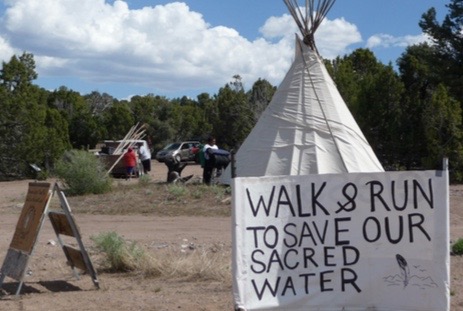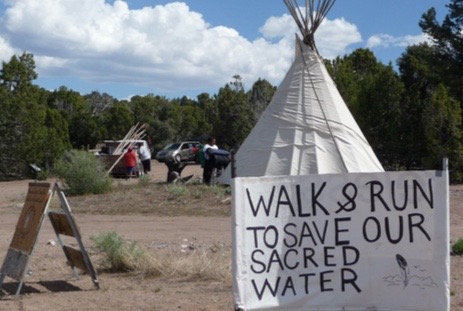On Memorial Day weekend, a guided camping tour will travel the area to be affected by the Southern Nevada Water Authority (SNWA) groundwater development project and existing fracking operations.
Over three days, from May 23th to 25th, the eastern Nevada trip will highlight key fragile areas within the vast region, located on the ancestral lands of the Goshute and Shoshone people.
Beginning in Alamo, travelers will venture east on remote (but generally good) dirt roads through the Delmar Valley, north and west through Cave Valley and into Ely, then on to Spring Valley. The tour will end Monday at the site of two major massacres of Shoshone and Goshute peoples, where travelers may pay their respects.
 This is the second year the tour has been organized to draw attention to the negative impacts of water and power development on communities of people, fragile ecosystems, and sacred lands. This year’s event adds a poetry workshop and a visit to the sacred Swamp Cedars, as well as a focus on the controversial process of hydraulic fracturing.
This is the second year the tour has been organized to draw attention to the negative impacts of water and power development on communities of people, fragile ecosystems, and sacred lands. This year’s event adds a poetry workshop and a visit to the sacred Swamp Cedars, as well as a focus on the controversial process of hydraulic fracturing.
Trip organizer Max Wilbert says the purpose of the tour is to get to know the land and people threatened by extraction.
“Once you have built a relationship with the place, you’ll fight to protect it,” Wilbert said. “There is a lot of history here, a lot of stories in this land that are worth telling.”
Local Rick Spilsbury of the Ely-Shoshone Tribe has been fighting the water grab for decades, and sees opposition as critical to the future.
 “The Western Shoshone still hunt and gather here—right where the worst of the environmental damage will be.” said Spilsbury. “The mass killing of life in this area will not only be the final blow to Western Shoshone culture, it will be a serious threat to their long-term sustainability—and even viability.”
“The Western Shoshone still hunt and gather here—right where the worst of the environmental damage will be.” said Spilsbury. “The mass killing of life in this area will not only be the final blow to Western Shoshone culture, it will be a serious threat to their long-term sustainability—and even viability.”
The $15 billion SNWA groundwater development project plans to extract water from mountain valleys in the Great Basin region and deliver it by pipeline to Las Vegas and the surrounding area. The embattled pipeline project faces mounting opposition from a growing network of organizations and individuals determined to ensure a sustainable supply of water for all needs within the Great Basin region.


